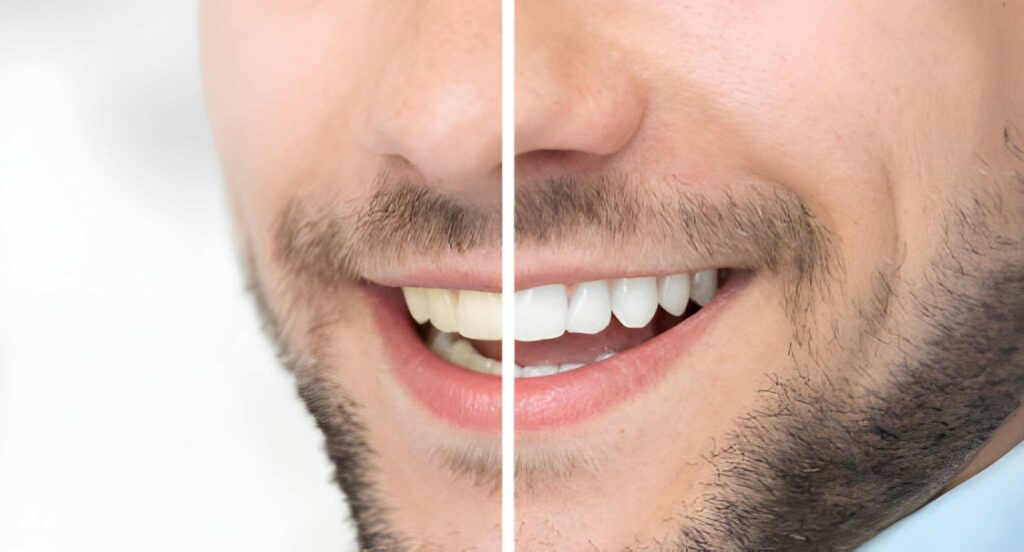Dental fillings help restore damaged or decayed teeth, preventing further complications. However, they do not last forever. Over time, fillings can wear down, crack, or become loose, requiring replacement. The lifespan of a filling depends on several factors, including the material used, oral hygiene, and lifestyle habits. Some fillings last only a few years, while others can remain intact for decades. Understanding how long dental fillings last can help you take better care of your oral health and prevent unnecessary dental procedures. This guide will explain the lifespan of different types of fillings, signs they need replacement, and how to make them last longer.
How Long Do Dental Fillings Last?
The lifespan of a dental filling depends on the type of material used and how well you maintain your teeth. On average, fillings last between five to twenty years before they need to be replaced. Amalgam silver fillings last ten to fifteen years, while composite white fillings usually last between five to ten years. Ceramic porcelain fillings can last ten to fifteen years, and gold fillings are the most durable, lasting fifteen to twenty years. Glass ionomer fillings, often used for temporary fixes, last five to seven years. If a filling becomes loose or falls out unexpectedly, seeking an emergency dentist can prevent further damage and discomfort. Proper oral hygiene and regular dental check-ups help extend the life of fillings.
Will an Emergency Dentist Extract a Tooth?
Types of Dental Fillings and Their Durability
Amalgam Fillings Silver Fillings
Amalgam fillings have been used for over one hundred years. They are a mixture of metals, including silver, tin, copper, and mercury. These fillings are strong, durable, and cost-effective, lasting ten to fifteen years. However, they do not match natural tooth colour, making them more noticeable. Over time, amalgam fillings expand and contract, which may cause small cracks in the tooth.
What Happens if a Decayed Tooth Is Not Extracted?
Composite Fillings White Fillings
Composite fillings are made from resin and ceramic materials. They blend well with natural teeth, making them a popular choice. These fillings last five to ten years and are ideal for small to medium cavities. Although composite fillings look natural, they are less durable than metal fillings.
Ceramic Porcelain Fillings
Ceramic fillings are made from porcelain, giving them a natural appearance. They last between ten to fifteen years and are stain-resistant. However, ceramic fillings are more expensive than composite fillings. They also require more tooth structure removal during placement.
How to Know If a Tooth Infection Spreads to the Brain?
Gold Fillings
Gold fillings are one of the most durable options, lasting fifteen to twenty years or even longer. They do not wear down easily and are resistant to corrosion. However, gold fillings are expensive and require multiple dental visits. They are also highly visible, making them less desirable for front teeth.
Glass Ionomer Fillings
Glass ionomer fillings are made from glass and acrylic materials. They release fluoride, helping to protect teeth from further decay. These fillings last five to seven years and are usually placed on non-chewing surfaces. However, they are weaker than other fillings and may wear down more quickly.
Can a Tooth Infection Self-Heal?
Signs Your Filling Needs Replacement
Even the most durable filling will eventually need replacement. Some common signs that indicate your filling may be wearing out include tooth sensitivity when eating hot, cold, or sweet foods, cracks or chips in the filling, persistent toothache, a loose filling, or discolouration in composite fillings. If you notice any of these signs, book an appointment with your NHS dentist for a check-up. Early detection and treatment can help prevent further tooth decay or infection. Regular visits to an NHS dentist ensure that any dental issues are addressed promptly, keeping your teeth healthy and avoiding more complex treatments in the future.
How to Make Your Fillings Last Longer
Taking care of your fillings can extend their lifespan and keep your teeth strong and healthy. Some simple steps to maintain dental fillings include brushing twice daily with fluoride toothpaste, flossing daily to remove plaque, limiting sugary foods, avoiding biting hard foods, wearing a mouthguard if you grind your teeth, and visiting your dentist regularly for routine check-ups. By following these steps, you can help ensure your fillings last as long as possible.
What is the 2-Month Rule for NHS Dentistry?
Can Diet Affect the Lifespan of a Filling?
Yes, diet plays a major role in how long fillings last. Foods and drinks that contain high amounts of sugar can lead to new cavities, weakening the tooth around the filling. Acidic drinks like soda and citrus juices can also erode fillings over time. Avoiding sticky foods like chewing gum, toffees, and caramel can help prevent fillings from becoming loose or falling out. Drinking plenty of water and eating a balanced diet rich in calcium can support overall dental health.
Is There a Time Limit on NHS Dental Treatment?
When Should You See a Dentist?
Regular dental visits are essential for monitoring the condition of your fillings. Dentists recommend check-ups every six months, but you should visit sooner if you experience pain or sensitivity in a filled tooth, a cracked or broken filling, a filling that feels loose or falls out, or dark spots or signs of decay around the filling. Early detection of filling issues can prevent more serious dental problems, such as infection or the need for root canal treatment.
Can You Get Same Day Dentures on NHS?
Final Thoughts
Dental fillings are a long-lasting solution for treating cavities and restoring teeth. While they can last for many years, they eventually need replacement. The lifespan of a filling depends on the material used, oral hygiene, and lifestyle choices. By following proper dental care habits, eating a balanced diet, and attending regular dental check-ups, you can extend the life of your fillings and keep your teeth healthy. If you suspect your filling needs replacement, book an appointment with your dentist to ensure your smile stays strong and cavity-free.
Restore Your Smile at Holburn Dental & Implant Centre
If you have a damaged or worn-out filling, don’t wait for further complications. At Holburn Dental & Implant Centre, we provide high-quality dental care, including long-lasting fillings and restorative treatments. Our experienced team ensures a comfortable and pain-free experience, using the latest techniques to restore your teeth.
Regular check-ups help detect early signs of wear, preventing bigger dental issues. Whether you need a new filling or a replacement, we are here to help.
📞 Book your appointment today at Holburn Dental & Implant Centre. Call us now to protect your smile and maintain strong, healthy teeth!
Frequently Asked Questions About Dental Fillings
How do I know if my filling is wearing out?
If you feel sensitivity, pain, or notice cracks in your filling, it may need replacement. A dentist can check for wear and decay during a routine visit.
Can I eat normally after getting a filling?
It depends on the type of filling. Amalgam fillings take a few hours to set, while composite fillings harden immediately. Avoid hard or sticky foods for at least 24 hours.
Do fillings stop tooth decay completely?
Fillings restore damaged teeth, but poor oral hygiene can lead to further decay around the filling. Regular brushing and flossing are essential.
Can a filling fall out?
Yes, fillings can loosen over time due to wear, grinding, or chewing hard foods. If a filling falls out, see a dentist as soon as possible.
Is getting a filling painful?
Dentists use local anaesthesia to numb the area, so you won’t feel pain during the procedure. Some mild discomfort may occur after the anaesthetic wears off.




